Efren Reyes called Charlie Kirk's wife, Erika Kirk, to offer condolences — but two words he whispered to his two children left everyone speechless. Viet
Efren Reyes called Charlie Kirk's wife, Erika Kirk, to offer condolences — but two words he whispered to his two children left everyone speechless.
1. The Call No One Expected
The phone rang at 10:37 a.m. on a Tuesday that already felt too long.
Inside the Kirk residence in Scottsdale, Arizona, sunlight drifted across a quiet kitchen counter scattered with unopened condolence cards, photographs, and half-drunk cups of coffee. The house had become a fortress of silence — part grief, part disbelief — after the sudden death of
On that morning, the voice that broke through the silence did not belong to a senator, a television host, or a political ally. It came from
“Mrs. Kirk,” he began, in his soft Tagalog-laced English. “This is Efren Reyes… I wanted to say, I’m sorry for your loss.”
Those who were in the house remember Erika’s pause — long, stunned, and slightly confused.
The two had never spoken before.

2. A Legend’s Instinct
In Manila, thousands of miles away, the news of Charlie Kirk’s death had already reached international outlets. Reyes, then 70, had been watching coverage late into the night after finishing an exhibition match.
“He didn’t know Charlie personally,” said Jose Alvarado, a longtime associate of Reyes. “But he said he saw the man’s videos — his drive, his intensity — and it reminded him of people who play like they’re carrying something heavy inside.”
Reyes rarely calls strangers, especially across oceans. But in this case, Alvarado recalled, “he just said, ‘I have to speak to his family. Maybe I can say something useful.’”
He found the contact number through a mutual acquaintance who had once helped coordinate a charity pool event that Turning Point USA sponsored in Manila in 2022. Within minutes, the call was placed.
3. The House in Mourning
When the call came, Erika Kirk had been sitting with her two children in the living room, surrounded by quiet toys and photographs. The television, muted, showed looping footage of news anchors speculating about her husband’s final hours. She had turned off most of her phones days earlier, tired of strangers’ condolences and pundits’ posturing.
But this number was foreign. International. Unexpected.
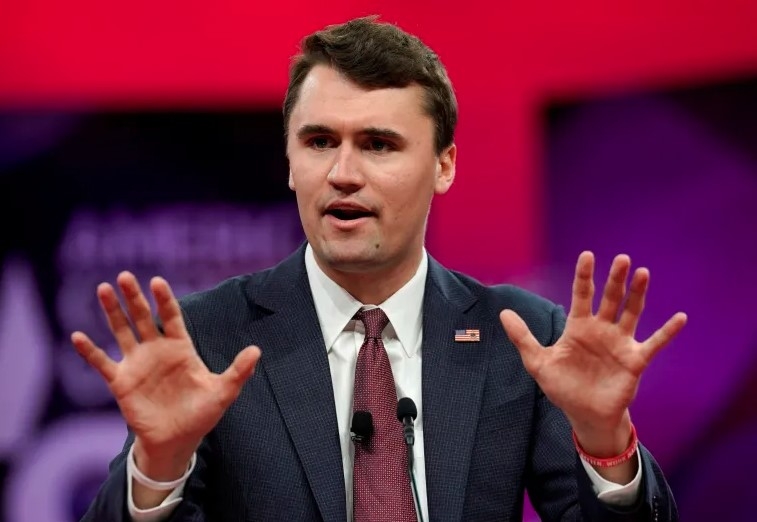
“Something about it made her pick up,” recalled a close family friend who later spoke on condition of anonymity. “She told me later, ‘I just felt… it was different.’”
When Erika answered, the voice was steady but carried an accent that sounded both distant and soothing. “He introduced himself so humbly,” the friend said. “She didn’t even believe it was
4. Between Silence and Stars
For the first few moments, the conversation was formal — a condolence call, polite and brief.
Then, Reyes asked quietly, “Are your children nearby?”
Erika hesitated. “Yes… they’re here.”
“May I say hello?”
She handed the phone to the eldest, a boy of eight.
What followed lasted less than a minute, but it would become the most talked-about moment of the entire week.
5. Two Sentences
What exactly did Efren Reyes say to the children?
Only those in the room know for sure, and none have spoken publicly. But through friends, snippets of the exchange have emerged — not exact quotes, but impressions of something profoundly simple.
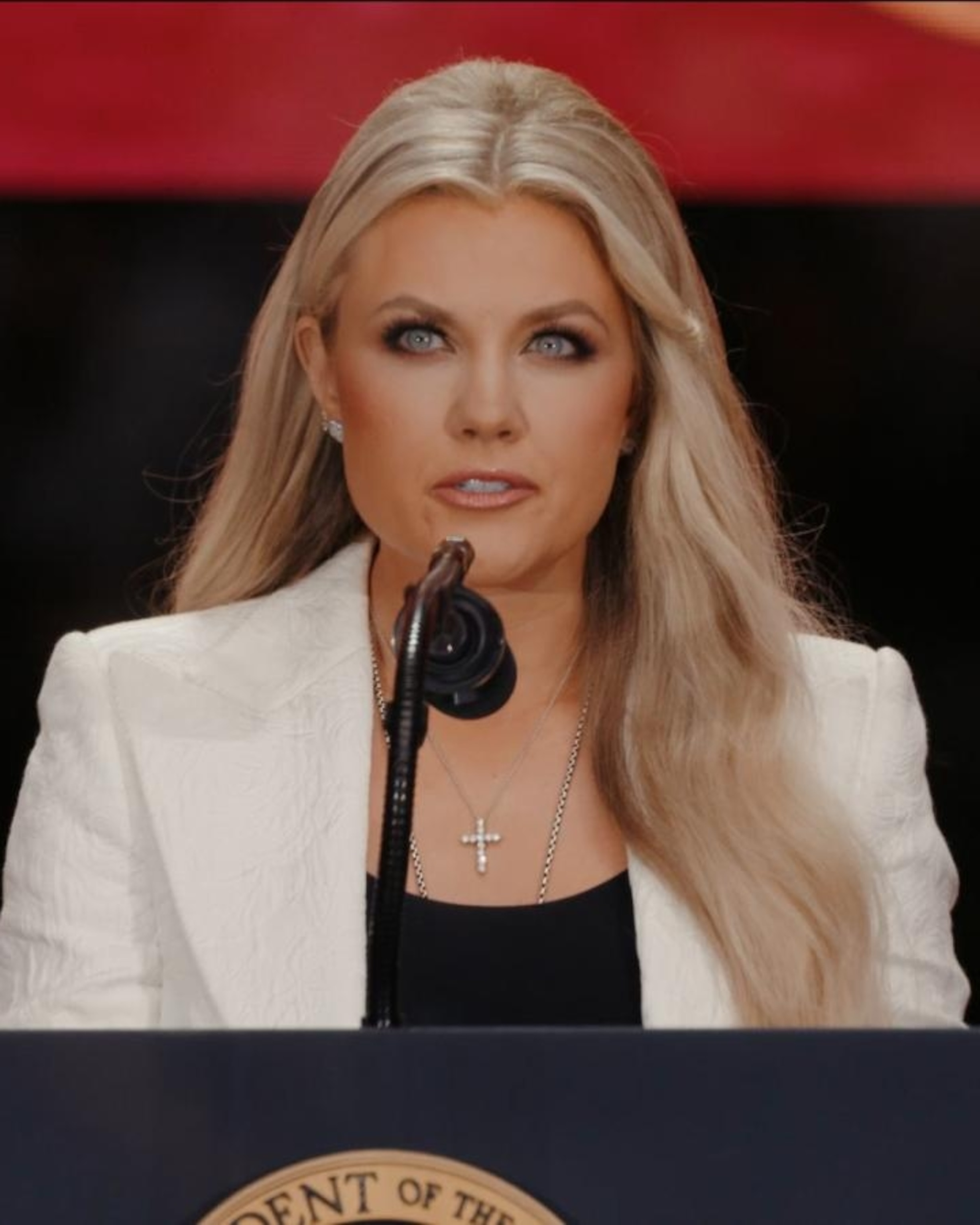
“Your father’s light is not gone,” Reyes is said to have whispered.
“It just moved to another table — one we can’t see.”
Two sentences. Barely a dozen words. Yet, according to those present, the entire room fell silent.
The youngest child, who had been fidgeting moments before, stopped moving. Erika turned away, covering her face.
“It wasn’t sadness,” said a family friend who later heard the account. “It was… stillness. Like someone had finally said something that made sense.”
6. A Gesture Beyond Headlines
In a week when every network in America was replaying courtroom footage, conspiracy panels, and political debates, this quiet, unrecorded phone call was something else entirely.
It wasn’t a statement. It wasn’t a theory. It was a human act — raw, unfiltered, without cameras or agenda.

A few days later, someone close to the family mentioned it in passing during a prayer service. Within hours, it spread online. Hashtags began trending:
By midnight, global media outlets were trying to confirm if the story was true.
Reyes’s only response came through his assistant in Manila:
“Mr. Reyes called as a father and a believer. He wishes privacy for the Kirk family and asks that people focus on peace, not curiosity.”
7. The Man Behind the Whisper
To those who know Efren Reyes, the call was no surprise. For decades, his quiet philosophy has touched those far beyond billiards halls. Known affectionately as
“He’s the kind of man who apologizes to the cue ball if he misses,” joked
Reyes has made similar calls before — to strangers, to fans, to grieving families of his rivals. “He doesn’t see himself as a celebrity,” Castañeda said. “He sees himself as a man trying to keep the world from feeling too heavy.”
8. The Echo Inside the Kirk Home
After the call ended, Erika reportedly stayed on the couch for nearly an hour, holding the phone in her lap.
A neighbor who visited later said, “She looked like she had seen something that finally made her heart stop spinning.”
Later that evening, she wrote a short message on her private account:
“Sometimes comfort doesn’t come from knowing why — but from hearing someone remind you there’s still light.”
The message received over half a million likes before she deleted it the next day.
9. Beyond Words: The Symbolism of the “Other Table”
Analysts and journalists, unable to resist decoding the two-sentence whisper, filled airtime with interpretations.
What did “another table” mean? Was it a metaphor for heaven, legacy, or continuity?

To billiards fans, the meaning was clear. “Efren was speaking in his own language,” explained Filipino sports writer Carlo Mendoza. “In pool, every table is a new world. You play your best, then move on. No game ends — it only changes form.”
To Erika’s family, it was less about theology and more about permission — permission to see the loss not as an ending, but a movement.
10. The Broader Context: A Nation Still Asking Questions
Outside the home, America was still caught in its own fog of speculation.
The official inquiry into Charlie Kirk’s death had yet to conclude. Conflicting reports about the circumstances, health factors, and timeline kept news anchors busy.
But for once, the country’s collective attention turned — briefly — to a softer narrative: the widow, the children, and the unexpected phone call from a man 8,000 miles away.
“Maybe that’s why it resonated so deeply,” said Dr. Hannah Stein, a cultural analyst at Georgetown University. “It wasn’t about ideology or investigation. It was about shared vulnerability — something politics rarely allows.”
11. The Moment That Went Viral
Within three days, the clip of a Filipino television interview where Reyes was asked about the call reached 10 million views. He looked slightly embarrassed, his hands folded.
“I only said what I feel,” he replied.
“When we play, we must believe every miss can still be beautiful.”
The interviewer pressed him — did he realize his words had gone viral across the U.S.?
Reyes smiled faintly. “I did not mean to make a story. I only meant to make comfort.”
12. A Human Thread Amid Cold Facts
Meanwhile, reporters continued to chase harder angles — financial audits, internal memos, and ongoing inquiries surrounding Turning Point USA’s leadership structure. But in between the legal jargon and political speculation, this one act of empathy stood out as a human counterpoint.
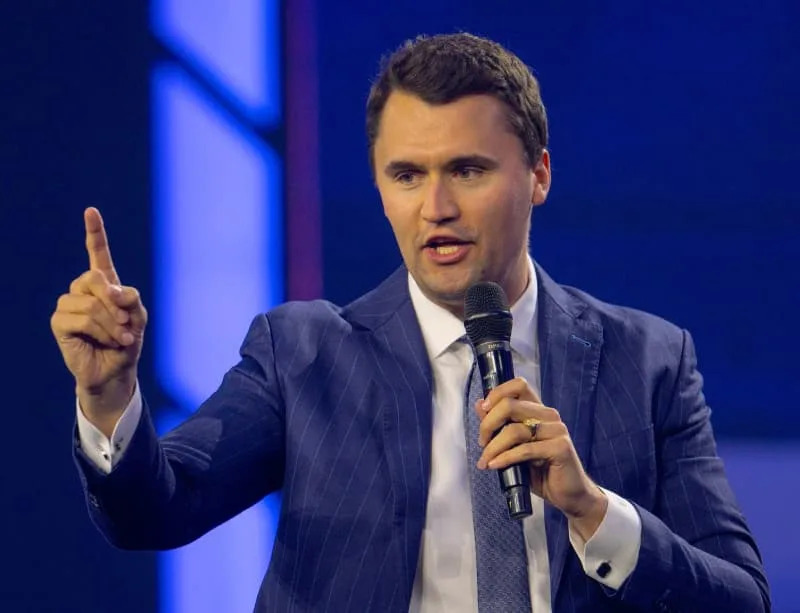
“It’s easy to lose humanity in a story like this,” said David Rios, a journalist covering both the Kirk investigation and the Reyes call. “The phone call reminded everyone — even the investigators — that behind the paperwork are people trying to keep breathing.”
13. Private Reactions
Inside the Kirk circle, the impact was quiet but lasting.
A week after the call, one of Erika’s closest friends visited and noticed something new in the living room: a small photo of Efren Reyes during a championship match, cue raised mid-shot. Beneath it, in neat handwriting, Erika had written:
“There’s always another angle.”
According to those who saw it, the photo became a kind of daily reminder — that grief, like billiards, is a matter of perspective.
14. Whispers of Legacy
In Pampanga, fans who heard about the story left flowers outside Reyes’s practice hall. One note read simply:
“For the whisper that made America cry.”
He responded by leaving a single cue ball on the table overnight — symbolic, he said, “for the man who is gone, but whose game continues.”
To many, it felt like poetry — a quiet bridge between two worlds: one of sport and one of sorrow.
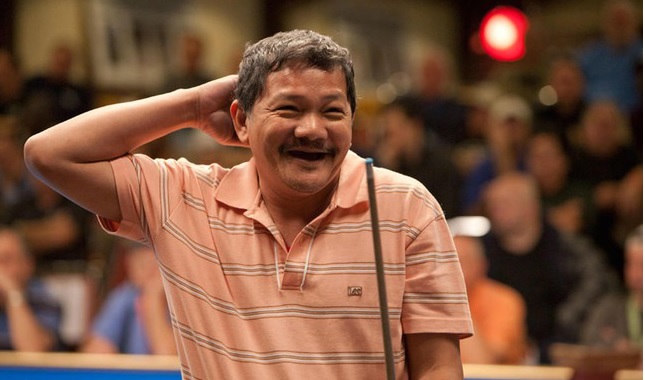
15. When the Story Reached the Children Again
Two weeks later, Erika agreed to a brief appearance on Good Morning America.
When asked how the children were coping, she smiled gently.
“My son says the stars look like pool balls,” she said. “He says maybe his dad is teaching the angels how to break.”
The studio audience fell silent. The interviewer’s voice caught.
Somewhere in Manila, when told of the remark, Reyes reportedly nodded and said,
“Ah. Then he understood.”
16. The Whisper Recorded?
In late October, an unverified audio clip circulated online, allegedly capturing part of the call. It was faint, distorted, and impossible to confirm. All one could hear, clearly, was a single phrase:
“Keep your table level, little one.”
Fact-checkers moved swiftly to debunk sensational claims around the clip. But the sentiment — authentic or not — echoed what people wanted to believe: that in a world flooded with noise, kindness could still be heard.
17. The Philosophical Undercurrent
Efren Reyes has often spoken of life as a long game without visible pockets. “Sometimes you hit the cue ball not to score, but to move the others closer,” he once told a journalist.
Applied to grief, the metaphor fits seamlessly. In comforting Erika’s children, he wasn’t explaining loss — he was repositioning it.
“He gave them agency,” said Dr. Stein. “He reframed their father’s death not as absence but as movement — from one table, one space, to another. It’s profoundly childlike and profoundly wise.”
18. A World That Needed Stillness
By the end of October 2025, as America braced for another political season, something unexpected lingered. Not the investigations, not the punditry — but the story of a phone call that crossed oceans to whisper peace.
Church sermons referenced it. School counselors quoted it.
Even major news anchors, hardened by years of breaking stories, called it “the gentlest headline of the year.”
For a moment, the noise stopped. And in that quiet, something universal returned — the belief that empathy, however small, still matters.
19. The Mystery Beneath the Magic
Some have tried to assign deeper meaning to Reyes’s words — as if they carried secret wisdom about life or faith. But those closest to him insist otherwise.
“He’s just… Efren,” said Alvarado. “He says what he feels. If it helps someone, that’s good. If not, that’s okay too. He believes sincerity travels farther than logic.”
Perhaps that’s why his call resonated in a nation exhausted by logic and division. It was uncalculated, spontaneous, and entirely human.
20. The Final Image
Today, the Kirk home in Scottsdale stands quieter, calmer. Reporters have left. The children are back in school. The house is filled with light again — not the harsh flash of news cameras, but real light, drifting through the blinds like grace rediscovered.
On the wall, beneath a family photo, hangs a framed note written by Erika in her handwriting:
“Your father’s light is not gone. It just moved to another table.”
Underneath, in smaller letters:
– Words from a stranger who reminded us what kindness sounds like.
21. Epilogue: The Cue Ball and the Sky
Efren Reyes has returned to exhibition matches in Manila. He smiles more now when fans mention the call, though he never elaborates.
“Some things,” he says, “are better left between hearts.”
He still signs autographs the same way — looping script, humble smile — but lately, he adds one new phrase beneath his name:
“Play softly.”
In the end, that might be the hidden lesson behind his two whispered sentences: that life, like billiards, is not about how hard you strike, but how gently you leave things in place.
22. The Whisper That Crossed the World
Months later, journalists still return to the story. Not because it solved a mystery, but because it became something else entirely — a reminder that empathy can travel farther than any broadcast signal.
No one recorded the call. There are no transcripts, no official confirmation. But across continents, millions now remember two invisible sentences that turned silence into solace.
In a world obsessed with proof, it may be the most believable miracle of all.
Robert De Niro Shocks on Jimmy Kimmel’s Comeback Show: “I Can Say Whatever I Want” — Revealing the Secrets of Who Really Controls Our Freedom..D

The television world was left in utter disbelief when Robert De Niro made an unexpected appearance on Jimmy Kimmel’s highly anticipated comeback show. Known for his iconic roles and fearless personality, the legendary actor did not hold back this time.
From the moment he walked onto the stage, the audience sensed something was different. He stared directly into the camera and boldly declared, “I can say whatever I want.
” The words, simple yet defiant, immediately sent shockwaves through the studio and across social media. Millions of viewers around the world paused, rewound, and replayed the moment as De Niro’s message echoed far beyond the walls of the set.
But those few words were only the tip of the iceberg. What followed was a revelation that no one could have predicted. In a few fleeting moments, De Niro began to expose a network of hidden influences quietly manipulating the freedoms we often take for granted.

He described, in haunting detail, how shadowy powers operate behind the scenes, orchestrating campaigns designed to silence dissenting voices and control the flow of information.
Sophisticated silencing campaigns, relentless pressure from powerful figures, and systematic manipulation of media narratives were all laid bare in a way that left both the live audience and online viewers stunned.
The actor’s words were not mere speculation. He spoke with conviction, as someone who has witnessed the subtle ways in which authority can shape opinion, dictate narratives, and, ultimately, influence society.
De Niro painted a picture of a world where appearances of freedom are carefully constructed illusions. Behind the glamorous facades of television studios, social media platforms, and even entertainment news, he claimed, forces are at work—forces that are rarely seen but deeply felt, capable of influencing what people think, what they say, and how they perceive reality.
The reactions were immediate and intense. Social media exploded with comments, shares, and heated debates. Twitter and Instagram were flooded with hashtags referencing De Niro’s appearance, while millions of users dissected every phrase, every inflection of his voice, searching for hidden meaning.
Some viewers were outraged, some inspired, and many simply stunned by the sheer audacity of a Hollywood legend openly challenging powerful, unseen entities.

News outlets rushed to report the event, trying to piece together what De Niro might have been referring to, and speculation ran wild. Was he talking about government agencies? Corporate conglomerates? Media empires? Or all of the above?
Critics of De Niro quickly emerged, questioning whether his claims were hyperbole or dramatization. Yet, even the skeptics could not deny the ripple effect his words had created.
Across online forums, discussion boards, and comment sections, people debated the veracity of his statements. Analysts and media experts offered in-depth examinations of historical patterns, pointing to numerous instances where voices of dissent were systematically suppressed. De Niro’s revelations, they argued, may have been extreme in delivery, but they were not entirely unfounded.
He did not stop at general statements. De Niro detailed specific methods used to exert control over public discourse. Sophisticated silencing campaigns often involve more than mere censorship; they can include coordinated online attacks, public shaming, and targeted misinformation.
Pressure from shadowy powers can manifest in subtle but pervasive ways, including career manipulation, social influence, and financial leverage. Systematic information manipulation ensures that certain narratives dominate while others are quietly suppressed, shaping public perception without the average person ever realizing it.
For many, this was a wake-up call. The audience that had initially been entertained by a simple celebrity appearance suddenly found themselves confronted with an uncomfortable reality. T
he freedoms they assumed were inherent were, according to De Niro, under constant threat from forces that thrive on secrecy, influence, and control. He emphasized that awareness is the first step toward resistance. Recognizing manipulation and understanding the mechanisms behind it are essential for reclaiming autonomy in thought and expression.
As the segment concluded, the atmosphere was tense. De Niro’s eyes, calm yet piercing, seemed to challenge each viewer personally: Are you truly free, or are you living under control without even realizing it? The question lingered long after the cameras stopped rolling, reverberating across social media feeds and news cycles alike.
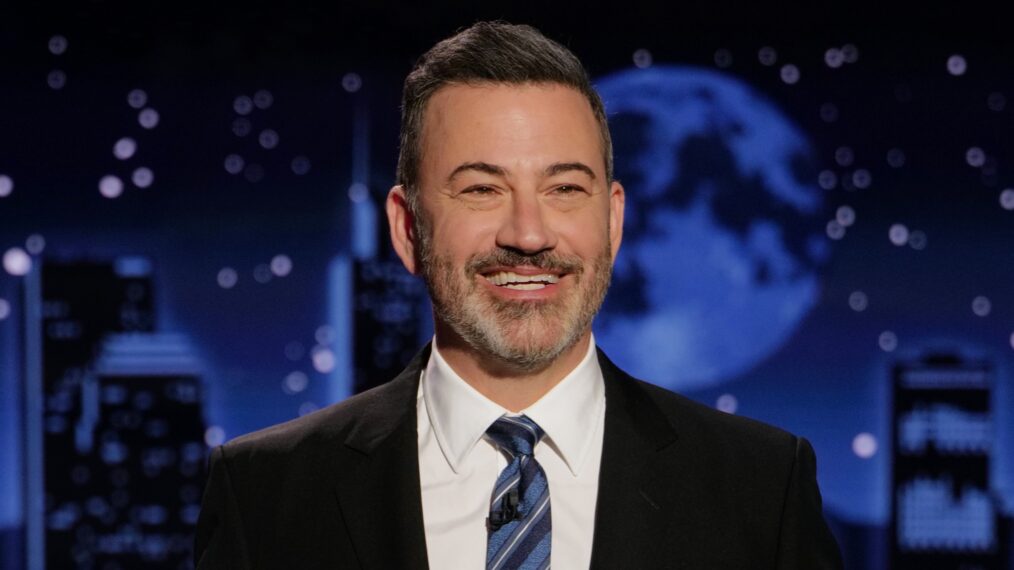
The world of entertainment often gives the illusion of glamour and freedom, but according to De Niro, the truth is far more complex—and far darker. In his short but powerful segment, he hinted at a web of influence that stretches far beyond the bright lights of Hollywood.
Powerful groups, often hidden from public scrutiny, exert pressure not just on celebrities but on the broader society. These forces, he explained, have perfected the art of subtle control. They manipulate narratives, suppress inconvenient truths, and quietly determine which voices are amplified and which are silenced.
De Niro spoke of sophisticated silencing campaigns that go beyond censorship. These campaigns can include coordinated online attacks, targeted misinformation, and public shaming designed to intimidate anyone who dares to speak against the prevailing narrative.
Even small dissenting voices are systematically pushed to the margins, while compliant narratives dominate mainstream discourse. It is a mechanism that maintains control without ever appearing overtly authoritarian, making it almost invisible to those living within the system.
Moreover, he described the pressure from shadowy powers. This pressure is subtle yet pervasive, often disguised as professional advice, industry guidance, or “opportunities.” Careers can be made or broken based on compliance with certain unwritten rules, leaving individuals trapped between ambition and conscience. For the average citizen, this influence operates through media narratives, education, and social expectations—quietly shaping opinions and beliefs without overt coercion.
The systematic manipulation of information is perhaps the most insidious aspect, De Niro warned. Facts are selectively presented, histories are rewritten, and certain viewpoints are amplified while others are buried.
Over time, the public absorbs a version of reality carefully curated by these unseen forces. It is a quiet form of control, almost imperceptible, yet profoundly impactful on the way society functions and the way people perceive their own freedoms.

Reaction to De Niro’s revelations was immediate. Social media exploded with hashtags referencing his appearance, millions of people dissecting every word, every intonation, and every gesture.
Some viewers expressed fear, others outrage, and many were inspired to investigate these “hidden forces” for themselves. Online communities debated endlessly: Who are these shadowy powers?
Are they governmental agencies, corporate conglomerates, media empires, or a combination of all? Theories ranged from plausible to outlandish, but one thing was undeniable—the conversation had been ignited, and it would not die down easily.
News outlets scrambled to cover the event, balancing skepticism with intrigue. Analysts examined De Niro’s claims, citing historical patterns where voices of dissent had indeed been suppressed.
Others warned against paranoia, suggesting the actor’s statements were deliberately provocative. Yet even the critics admitted that his segment had struck a nerve, forcing the public to question narratives they had previously accepted without scrutiny.
De Niro’s message was clear: freedom, as most people understand it, is fragile. It is not absolute, and it can be quietly eroded by forces operating behind the scenes. Awareness and critical thinking are essential to maintaining autonomy.
By speaking out, he challenged not only the entertainment industry but also every individual watching, daring them to confront uncomfortable truths about the control mechanisms in place around them.
Millions of people worldwide shared clips, screenshots, and personal reactions, sparking heated debates in comment sections, forums, and live streams. Many viewers were in disbelief that a Hollywood icon would openly confront hidden powers that influence freedom. Others expressed concern, realizing that the freedoms they often take for granted might not be as secure as they believed.

News outlets scrambled to cover the story. Some headlines questioned whether De Niro’s claims were sensationalism; others treated them as a wake-up call. Analysts dissected his words, drawing parallels to historical patterns where voices of dissent were suppressed through coordinated campaigns, media manipulation, and economic pressure.
Across continents, people began sharing personal stories of how subtle pressures had affected their work, speech, and online presence. De Niro’s short appearance had triggered a global conversation about autonomy, censorship, and influence.
De Niro’s remarks reminded the world that freedom is not merely the absence of laws restricting speech; it is also the ability to access unbiased information and express oneself without fear of repercussion.





